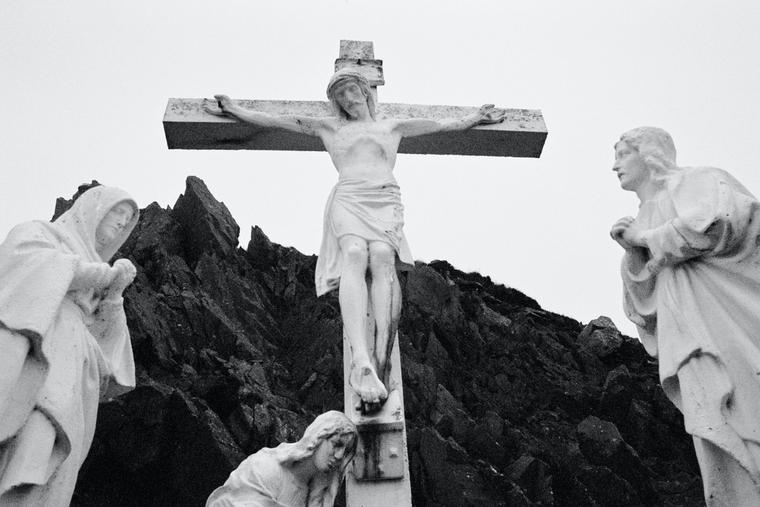The Demands of Divine Love: Christ, the Cross and Calvary
BOOK PICK: ‘Atonement’

ATONEMENT
SOUNDINGS IN BIBLICAL, TRINITARIAN, AND SPIRITUAL THEOLOGY
Margaret M. Turek
Ignatius Press, 2022
266 pages, $19.95
To order: ignatius.com or (800) 651-1531
Asked why Jesus suffered, the average Catholic might say: to atone for our sins. If pressed, he’d likely explain Jesus “made up” for our sins in terms of justice.
The better catechized might paraphrase Anselm of Canterbury: Sin is an infinite offense against God because God is infinite. Man cannot repair what he destroyed, because he is both damaged and not infinite. So we needed a God-man as Second Adam to fix what the first ruined.
But why the cross? If anything Jesus did has infinite value, couldn’t atonement have occurred less horrifically? Yes, but the Father so willed it to emphasize the gravity of sin.
What kind of image of the Father might some draw?
Margaret Turek, who teaches at St. Patrick’s Seminary and University in California, proposes a challenging and intriguing rethinking of the doctrine of atonement, recast in terms of the demands of divine love. Far from diluting the seriousness of atonement, this work of speculative theology, building on the thought of four contemporary theologians (John Paul II, Benedict XVI, Hans Urs von Balthasar and Norbert Hoffmann), arguably deepens its significance. It does so by connecting atonement with both Trinitarian theology and theological anthropology.
“… a merely juridical understanding of the relation of forgiveness and satisfaction cannot do justice to the profoundly interpersonal quality of the process by which sin is eliminated. … [O]ur study has brought to light that what is at stake in the Christian doctrine of atonement is nothing less than the Christian concept of God. To see into the heart of the cross event is to perceive it as a dramatic epiphany, shaped in response to sin, of the mystery of the eternal Trinity. It is to perceive that forgiveness and atonement are rooted in the Trinity like fatherhood and sonship, active and receptive generation” (232-33).
Sin leaves real damage that must be repaired: It cannot just be wished away or ignored. If God is “angry” at the sinner, it is because the sinner is made in God’s image and likeness, and God cannot agree to what mars or destroys that image and likeness. God’s anger is just the opposite side of the coin of his love, because the Father intends to create “sons in the Son” and cannot acquiesce in what negates that sonship. When, in response to God’s initiative of conversion, the sinner “turns” back, sin causes him to experience a sense of abandonment, as if God was not present. Willingly following the Father despite that forsakenness imitates Christ and his sense of abandonment on Calvary. Christ atoned by taking on sin, including the sinners’ sense of abandonment, yet remaining faithful to the Father. The Father allows himself to be hidden without ever not supporting his Son.
This process is rooted in the life of the Trinity itself: The Father never clings so tightly to his divinity that he does not pour it out completely in the eternally begotten Son. The Son does not grasp that divinity so tightly as not to return it to the Father, so that the Spirit proceeds from them both. In that sense, the “giving and receiving” in the Trinity itself both provides a model for the Incarnation and for what man’s adoption in Christ should entail. It is all measured entirely by divine love.
This brief review cannot explore the density of Turek’s serious theological speculation about God’s loving passion as it involves sinners, its biblical foundations, or implications for Trinitarian theology or spirituality. The book demands careful and attentive reading, but I am convinced it is on to something important, in terms of an understanding of atonement that seeks to be orthodox while, at the same time, drawing out the utterly serious implications of what it means to be loved by a God who is Love.

















